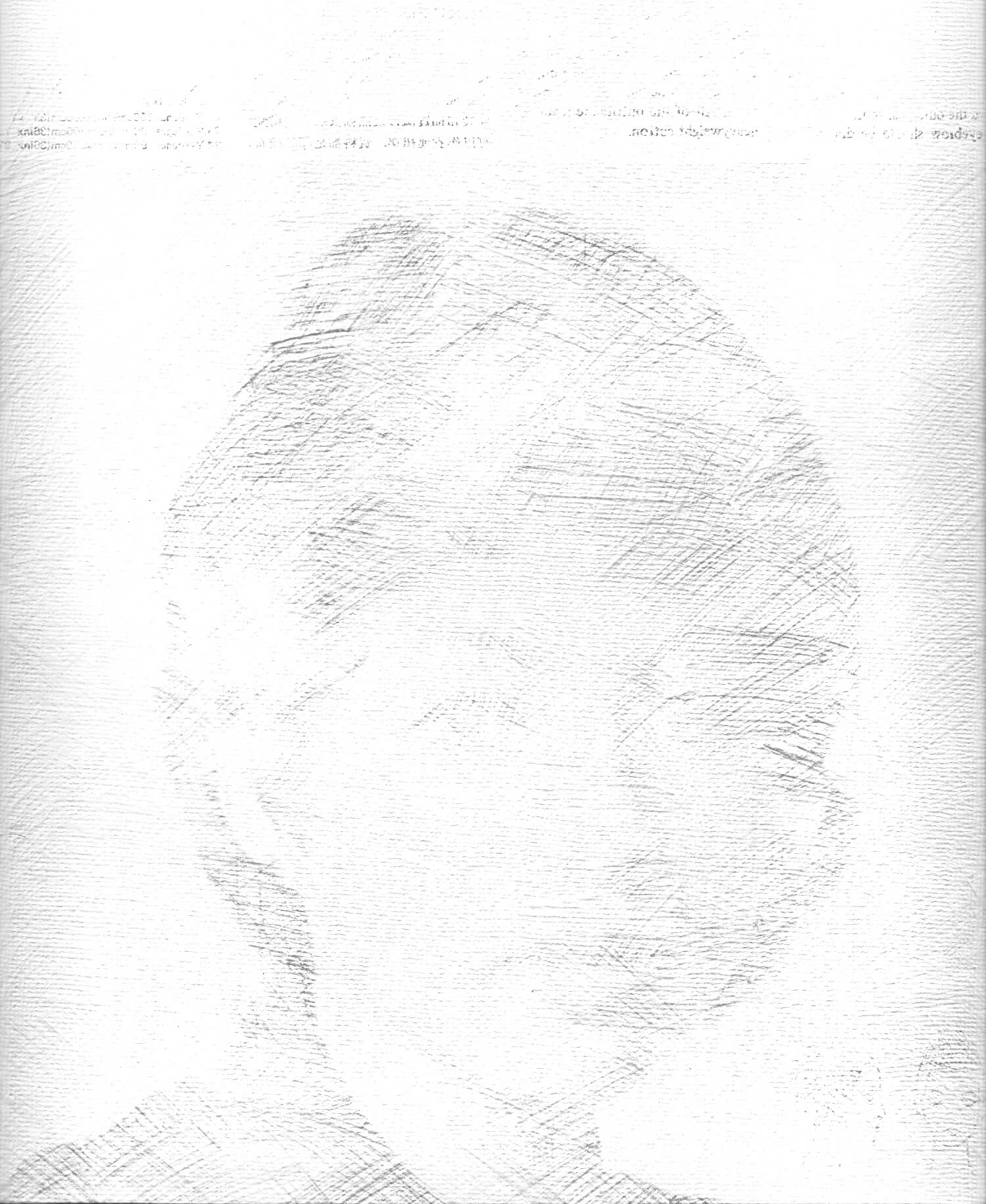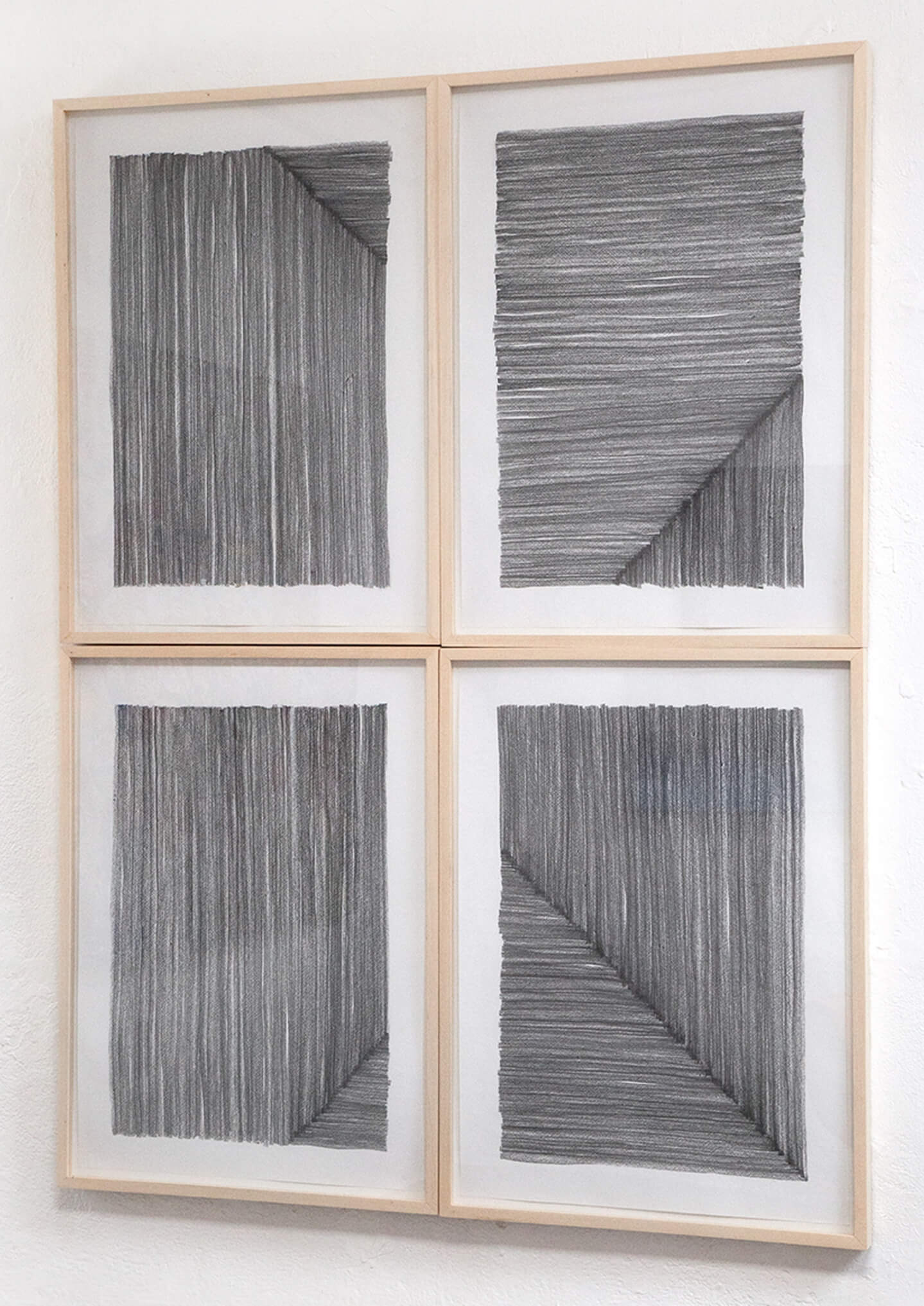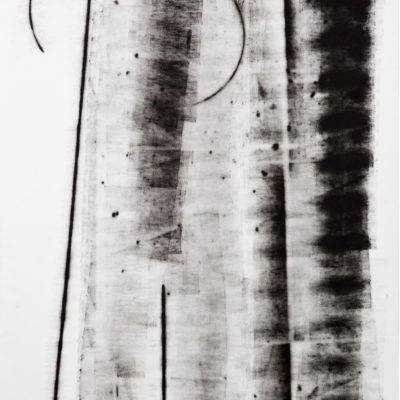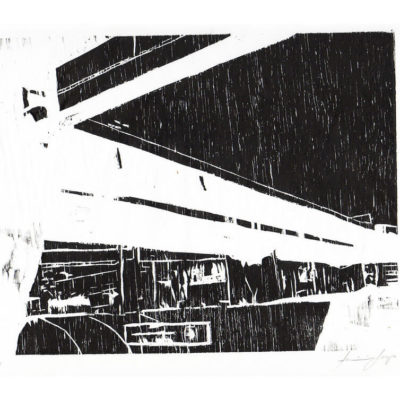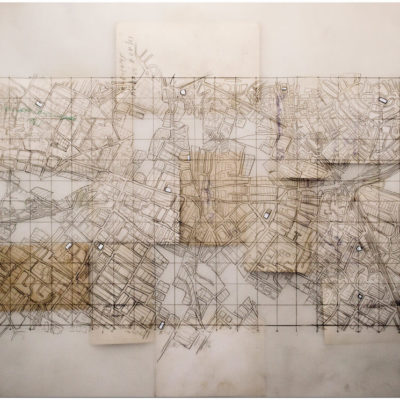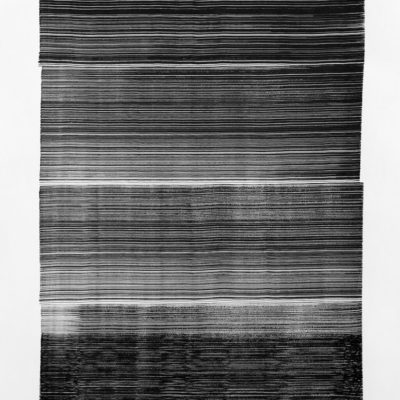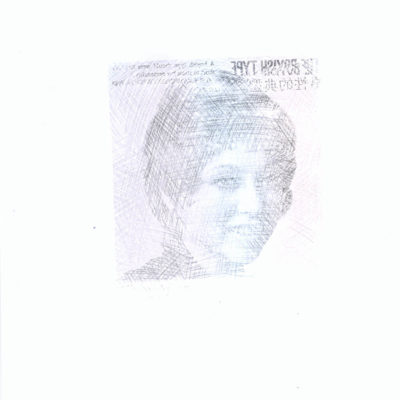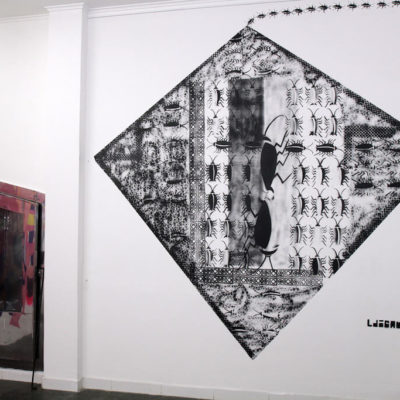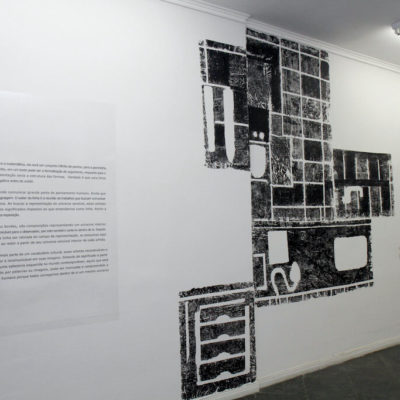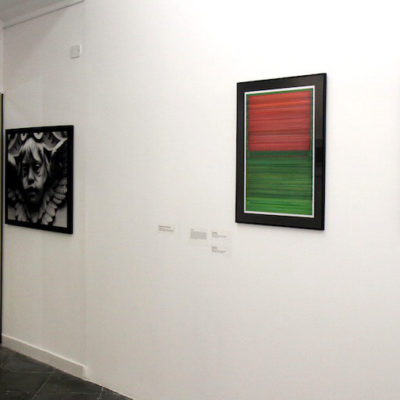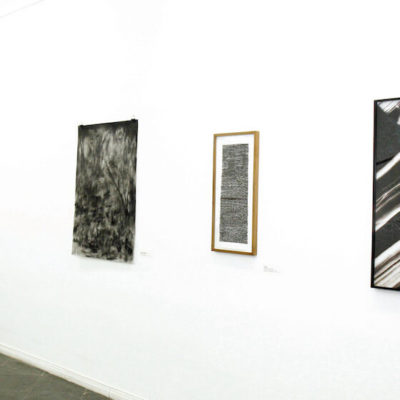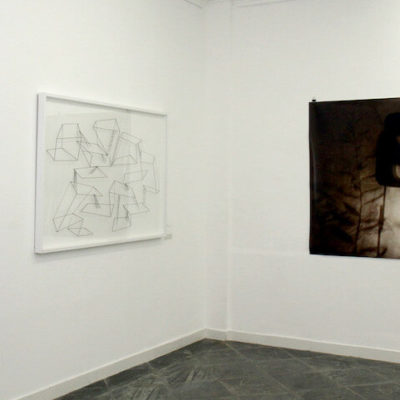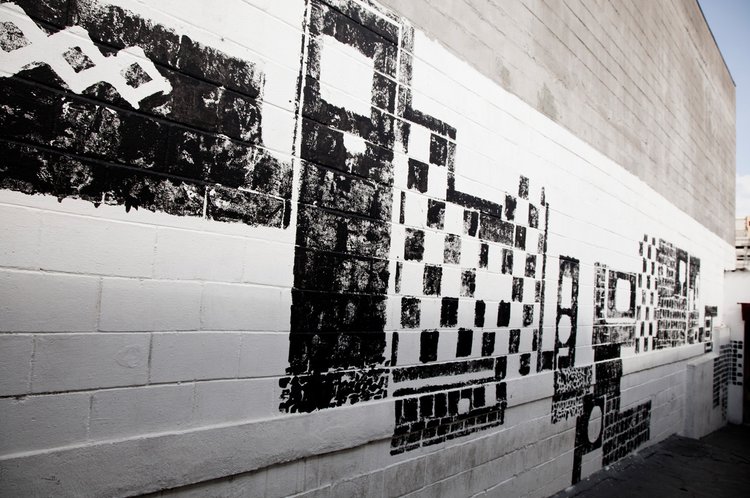


O saber da linha
[The knowledge of the line]
Alexandra Ungern-Sternberg | Andrey Zignnatto | Camilo Meneghetti | Evandro Soares | Fábio Leão | Fernanda Carvalho | Jê Américo | Marcelo Amorim | Pedro Gallego | Tchelo
Curatorship
Paulo Gallina
A LINE CAN BE MANY THINGS. FOR MATHEMATICS, IT WILL BE AN INFINITE SET OF POINTS; FOR GEOMETRY, THE PERIMETER OF AN INFINITE RADIUS CURVE; IN A TEXT IT MAY BE THE FORMALIZATION OF THE ARGUMENT; WHILE FOR DRAWING THIS ELEMENT OF REPRESENTATION WOULD BE THE STRUCTURE OF THE SHAPES. THE TRUTH IS THAT A LINE HAS NO PURPOSE OR PREROGATIVE BEFORE IT EXISTS.
Absent in a sense by itself, it can communicate much of human thought. Although it is necessary to consider the limits of language. The knowledge of the line is the collection of works that seek to communicate about what the language does not access. In seeking to represent the sensitive universe, these artists deconstructed with their works the meanings imposed on what we understand as a line. Thus, the expectation of the gaze is inverted in this exhibition.
The strokes here are not lines or borders, they are compositions representing an inner universe. Universe that only becomes communicable for the observer, because he also contains it within himself.
After the sign was emptied, after the line was removed from the field of representation, the research presented here recreated the surrounding world based on each artist’s interior sensitive universe. Starting from a line, now no longer part of a cultural vocabulary, these artists reconstructed and re-presented their inner and incommunicable world in their images. Endowed with meaning from its use, the line holds in itself a wisdom forgotten in the contemporary world: that which is beyond what can be communicated by words or images, can be insinuated from the most primitive human element and understood because we all carry within itself the same sensible universe.
Paulo Gallina
